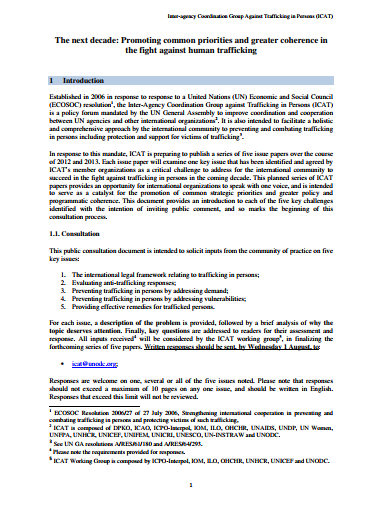Established in 2006 in response to response to a United Nations (UN) Economic and Social Council (ECOSOC) resolution, the Inter-Agency Coordination Group against Trafficking in Persons (ICAT) is a policy forum mandated by the UN General Assembly to improve coordination and cooperation between UN agencies and other international organizations. It is also intended to facilitate a holistic and comprehensive approach by the international community to preventing and combating trafficking in persons including protection and support for victims of trafficking.
In response to this mandate, ICAT is preparing to publish a series of five issue papers over the course of 2012 and 2013. Each issue paper will examine one key issue that has been identified and agreed by ICAT’s member organizations as a critical challenge to address for the international community to succeed in the fight against trafficking in persons in the coming decade. This planned series of ICAT papers provides an opportunity for international organizations to speak with one voice, and is intended to serve as a catalyst for the promotion of common strategic priorities and greater policy and programmatic coherence.
This document provides an introduction to each of the five key challenges identified with the intention of inviting public comment, and so marks the beginning of this consultation process.

